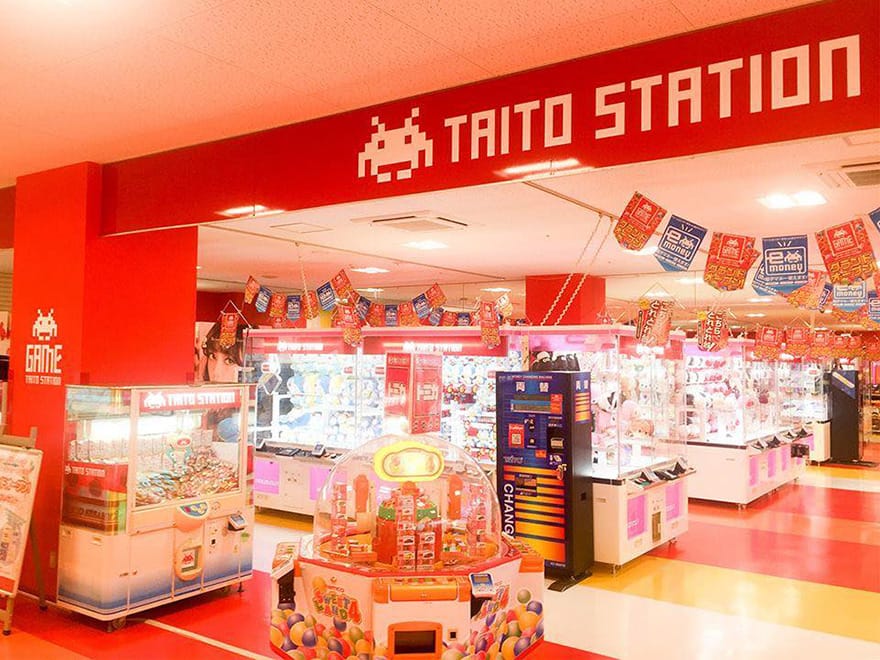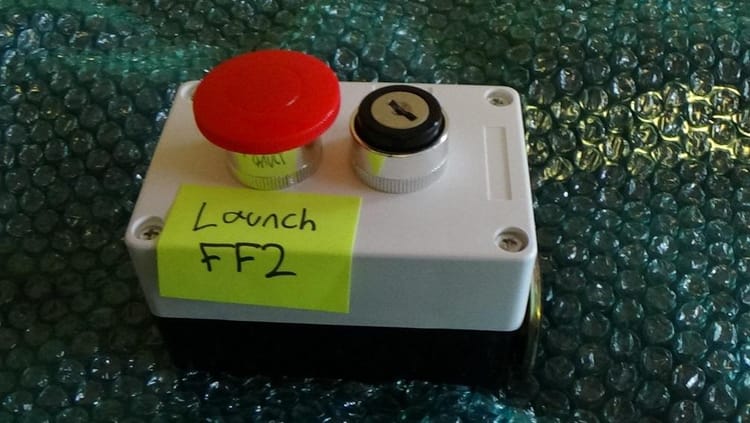I miss the summers in Japan: How videogames overcome language barriers

I sat cross legged in front of the TV and watched as Alex carefully removed the Super Nintendo from its dusty, neglected box. Our grandfather hardly used it, preferring to play Shogi on his computer instead of the console. Also stored away were a pile of games with labels we couldn’t read. The Japanese characters were printed in bold intimidating letters, with no illustrations to help guide our interpretation of what the cartridge held. He fished around for a second before grabbing the Super Mario World (1990) cartridge, blowing into it. It was a very familiar ritual, repeated during our yearly trips to see family in Japan.
My brothers and I had been playing games in Japan since we were eight. We played Super Mario World every single time we visited. As he switched the console on, the menu appeared and he came to join me on the floor. His hands seemed too large for the small controller, looking lanky and awkward. The unfamiliar kanji of Super Mario World took over the screen, a glaring reminder that neither of us could read the letters of our own heritage. Unphased, he pressed start.
///
Although there is no physical structure barring you from interacting with someone who doesn’t speak your language, trying to communicate with a language barrier is difficult. Before the conception of Google Translate to provide on-the-fly if questionable translations, one would have to pantomime or play an awkward game of charades in order to communicate an idea effectively. Trying to overcome a language barrier is getting a little easier with the accessibility of the internet. There are YouTube videos, mobile language apps, and services that pair you with a native speaker who can help you practice your skills. It’s become less intimidating to climb that figurative wall.
there will always be things lost in translation
That being said, there are still a number of problems with these tools. Google Translate is only satisfactory at providing common phrases that are absolutely essential to surviving in a foreign country. For example, you’ll be able to find English speakers in Tokyo because it’s a big city with a lot of tourists. You can get by without knowing how to say “where’s the bathroom?” in Japanese. If you travel to more rural areas, it’s likely that you won’t have the same experience. Knowing how to say “といれ わ どこ です か?” is pretty important. I didn’t go into Google Translate for that. I knew what I wanted to ask and typed it out in Japanese. But if I didn’t have this knowledge, and wanted to ask “where’s the bathroom?” and pasted it into Google Translate, this is what I am presented with: “バスルームにはどこですか?”. You’ll note that this is not the same as what I had typed. Google takes a long-winded way to ask where the bathroom is—a simple phrase that doesn’t require all of those extra characters. As an added bonus, Google also incorrectly translates “bathroom” as “Basurūmu”. It should be “toire”. Because in Japanese, you don’t really say “bathroom”, you say “toilet”. Is that confusing? Yes.
This demonstrates how there are not always direct translations from English to another language. Translators run into this problem all the time—an idea that may take an English speaker two sentences to convey might take a Japanese speaker closer to 10 sentences, perhaps due to sentence length or the speed at which they’re talking. This is why, when you watch an interview with a Japanese game creator accompanied by their English translator, you might wonder if something seems “off”. It’s because of that obstacle of structure. It’s hard to take something and translate it on the spot, trying to pick and choose the right words to communicate, as well as provide alternatives to words that have no direct translation. Even with the best translator, there will always be things lost in translation. Language is tricky like that.
///
We all put on our shoes one by one by the genkan (玄関) while Oba-chan stood behind us with watchful eyes. “Be respectful when you go over to Sunaga-san’s house,” she told us. We nodded before piling out of the door and running across the street toward our neighbor Yuka’s house. She was older, but had known us since we were small. Her family was fond of us and also possessed a Super Nintendo. They had more games, and always told us we were welcome to use it.

When my brothers and I would spend the entire summer in Japan, we would take that offer seriously. I reached up to the buzzer and pressed it, listening to the soft humming noise that escaped the speaker. “Yes?” A familiar voice chimed in response, and Sunaga-san opened the window by the front door. “Come inside!” We took off our shoes by the genkan and ran straight over to the living room, where Yuka had set up the Super Nintendo for us. She was at school. Sunaga-san ushered me over to the kitchen while Jacob and Alex scrambled for the controllers. “You can have all of these treats,” she said, motioning toward a pile of chocolate and crackers. I understood her clearly.
My Japanese was very good as a child. It was rude to deny offerings of food, and so I accepted the gesture before joining my brothers in front of the TV. They were playing Puyo Puyo Tsu (1994). We stuffed rice crackers into our mouths while passing the controller after each loss, taking turns watching cutscenes and wondering what the characters were saying. The small text ran across the screen, its meaning lost upon us as we huddled together and jabbed our tiny fingers at each combo we could score.
///
There are activities that go beyond language barriers, requiring no common tongue in order to be understood by both parties. Everyone around the globe shares the same action to show that they’re choking (what you might call the “universal choking” sign)—by placing their hands up to their neck and looking distressed. That transfer of information is instant and innate. I don’t need to know Japanese in order to run up and provide the Heimlich maneuver. Arguably more terrifying than choking is the language of dance (especially if you have two left feet like me). Dance: where the movement of your hips and the positioning of your feet say more than words ever could. Dancing can be calculated and beautiful or impromptu and clumsy. But everyone can understand each other during this activity without having to open their mouth once.
Games have been used to facilitate conversation
Just as there is the language of movement, there is also the language of play. The act of playing a game with someone you can’t communicate with verbally creates a conversation that takes on a different form. There’s an implied understanding of what is going on. There will be a winner and a loser. The process from A to B can be completed without uttering a single word. A game that has embodied this well would be chess. Chess has been around for 1500 years, originating in India and spreading to Southern Europe. It’s when chess arrived in Europe that the modern developments we see in the game happened. The pieces were changed, tournaments became a thing, and people began establishing chess theory. After being picked up by Buddhist pilgrims and traders on the Silk Road, it spread to the countries of East Asia. Of course, there are variants of chess such as Xiangqi and Shogi (from China and Japan, respectively). Without even sharing the same language, people have picked up the game and made it their own or carried it back to their country to share.
The act of playing traditional chess has provided what videogames are accomplishing today. It’s bridging the language barrier gap in its own small way by providing an experience that is hard to replicate. When Oba-chan and Oji-chan came to visit my family in America many years ago, we still owned a GameCube. Although they had no idea what I was playing, they would watch me as I picked crops in Harvest Moon: A Wonderful Life (2003). They would laugh when I would walk up and brush my cow and angered it, causing it to moo furiously at me. They never asked questions, but simply watched and enjoyed. We were sharing a moment.

Games have been used to facilitate conversation and interactions between two people who don’t share a common tongue, or who may have a rudimentary grasp of the language and can’t understand a conversation to its fullest. Growing up playing games in rural Japan with my brothers has taught me this. It helped shape my understanding of how people create connections with each other, even if they may not fully comprehend what one another is saying.
Games were so important to the relationships that I crafted as a child during the hot summer days. I may not have always understood what the neighborhood kids were saying, but I didn’t need to know everything in order to have a Jirachi transferred over to my Game Boy Advance through a game link cable. I may not have understood what my cousin said to me and my brothers, but we didn’t need to know in order to unleash an onslaught of Beyblades toward an unsuspecting group of ants. My brothers and I would play Yu-Gi-Oh with the boy who lived behind our grandparents, even though all of our Japanese was rusty.
As I’ve grown into an adult who has continued to play games, I’ve come to realize that I would not have such a deep-rooted love for my second language if not for the summer of 2002. That was when, for me, games and language really intersected, when everyday was filled with nothing but speaking Japanese 24/7 and playing Yu-Gi-Oh or Clock Tower across the street. That summer couldn’t have happened if it wasn’t for my mom taking the time and effort to teach the three of us her language. Since then, my mom has stopped talking to me in Japanese, because as I grew up I would automatically respond to her in English. She just stopped. And I’m trying to get it back. I feel like I lost a connection not only to my mom but also to one of my most treasured memories. And so I look at videogames as both having achieved in helping me to appreciate Japanese but also instilling in me the feeling of guilt for not keeping up my study of it. I hate that I can’t read difficult Kanji yet, even after a year of practicing. I’m frustrated that I couldn’t translate everything that Hideo Kojima said during the Tokyo Games Expo. Maybe guilt isn’t the right word, but it’s games that are making me want to try to get it back—what I’ve lost is a way to communicate with another country, another people, my own mother. Sharing a controller with someone is symbolic of that pursuit, as while it won’t necessarily teach you another language, the way it overcomes language barriers is a start.
///
I was proud of myself. Although Oba-chan worried incessantly and walked me to the bus station in our rural part of Chiba, I had managed to board a bus that would take me to the local mall that had an arcade center. It was a familiar location, but my mom was not here with me. I had actually been alone in Japan for a few days. If I needed her to help me with a translation, she wouldn’t be able to provide me with one. I was on my own. I sat on the bus, staring out at the rice fields next to me as they slowly became tall buildings. My Japanese was good, I told myself. I would manage.

After I reached my destination I went to the third floor of the mall, remembering the routine that had been repeated many times throughout the year. It felt strange coming here without my brothers. Jacob and Alex would usually haggle with me for more Yen so that they could continue to play games. We could rely on each other for translations—but they were not here. I walked into the arcade and was greeted by rows and rows of claw machines, dance pads, rhythm games, and gashapon stations. They were all brightly lit and music emanated from every corner. I had my eyes set on a claw machine stuffed with miniature Shiba keychains. As I walked up to the machine, I noticed something—I had no idea how to use this one. It was different. I’d never seen how to use this one before. It wasn’t as simple as inserting 100 yen and moving the claw. I stood in front of the machine for a few minutes, staring at the instructions in front of me that I could not read.
As if reading my mind, a girl came up to me and motioned toward the machine. I stepped aside, and she smiled. I watched as she played the game, taking in her technique. She tried the game a few times without winning anything before stepping away and offering me the last play. She said something to me in Japanese. Embarrassed, I responded: “あ!あの, ありがとう!すみません.” (“Oh! Um, thank you! Excuse me.”) I gave her the first Shiba that I ended up winning from that machine.



